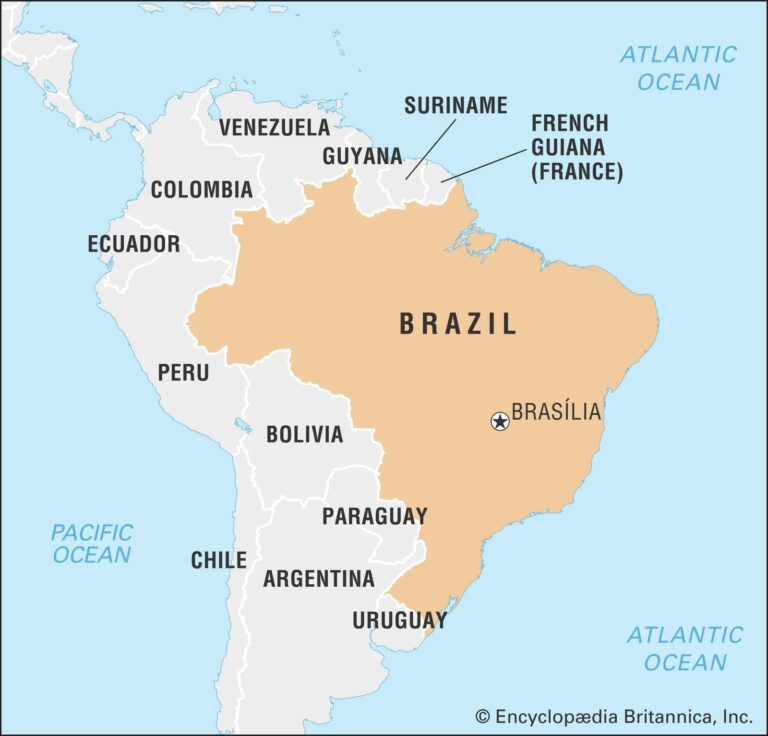In a significant move aimed at combating deforestation and promoting environmental sustainability, Brazilian President Luiz Inácio Lula da Silva has announced a $1 billion investment in a global forest fund. The commitment, revealed exclusively to Reuters, underscores Brazil’s renewed focus on preserving the Amazon rainforest and supporting international efforts to address climate change. This unprecedented injection of funds positions Brazil as a key player in global forest conservation initiatives and signals a strategic shift in the country’s environmental policies.
Lula Commits One Billion Dollars to Global Forest Conservation Efforts
Brazil’s commitment marks a pivotal shift in the global fight against deforestation and climate change. The $1 billion allocation will support initiatives spanning reforestation, sustainable land management, and indigenous community empowerment. By channeling these funds through a newly established international forest conservation fund, Lula aims to foster collaboration among governments, NGOs, and private sectors. This unprecedented investment not only reinforces Brazil’s leadership role but also sets a new benchmark for environmental responsibility worldwide.
The funding will target several key areas:
- Reforestation projects: Restoration of degraded lands and promotion of biodiversity.
- Indigenous rights: Safeguarding traditional territories as critical carbon sinks.
- Technology deployment: Enhanced satellite monitoring to combat illegal logging.
- Community engagement: Training and resources for sustainable economic alternatives.
| Funding Category | Allocated Amount (Millions USD) | Expected Impact |
|---|---|---|
| Reforestation | 400 | Restore 1M hectares |
| Indigenous Projects | 300 | Protect 500K hectares |
| Technology & Monitoring | 150 | Reduce illegal logging by 40% |
| Community Development | 150 | Support 10K families |
Implications for Climate Change and Biodiversity Protection
The $1 billion commitment marks a pivotal turning point in global efforts to combat climate change and curb biodiversity loss. By channeling substantial resources into forest conservation and sustainable management, Brazil aims to reinforce natural carbon sinks that absorb significant amounts of CO2 emissions, directly supporting the Paris Agreement targets. This infusion of capital is expected to fund reforestation projects, strengthen protected areas, and empower indigenous communities-key players in preserving biodiversity hotspots that are home to countless endangered species.
Key environmental benefits of this investment include:
- Reduction of deforestation rates contributing to lowering greenhouse gas emissions.
- Restoration of degraded forest lands to revive ecosystem services.
- Promotion of sustainable livelihoods that align economic growth with conservation goals.
| Impact Area | Projected Outcome | Timeframe |
|---|---|---|
| Carbon Sequestration | Increase by 20 million tons annually | Next 5 years |
| Protected Habitats | Expansion by 15% | Next 3 years |
| Community Engagement | 500 Indigenous projects supported | Within 2 years |
Experts Urge Enhanced Transparency and International Collaboration in Fund Allocation
In response to Brazil’s groundbreaking $1 billion pledge toward the global forest fund, leading environmental experts emphasize the critical need for transparent mechanisms that ensure efficient use of the resources. Transparency is seen as indispensable not only for building public trust but also for tracking the tangible impact of investments on deforestation rates and indigenous communities’ welfare. Analysts advocate for the implementation of accessible reporting platforms, enabling stakeholders worldwide to monitor fund allocation and project progress in real-time.
Moreover, specialists highlight that tackling deforestation and forest degradation demands an unprecedented level of international cooperation. By fostering collaboration across borders, governments and organizations can share expertise, mobilize financial resources, and align policies to amplify the fund’s effectiveness. Key priorities include:
- Standardizing environmental impact assessments
- Coordinating reforestation and conservation strategies
- Engaging local communities through participatory governance
- Establishing joint accountability frameworks
| Focus Area | Expected Outcome | Partner Organizations |
|---|---|---|
| Transparency Tools | Enhanced Monitoring | WRI, Transparency Int’l |
| Joint Initiatives | Unified Policies | UNEP, FAO |
| Local Engagement | Empowered Communities | Indigenous Networks |
The Conclusion
As Brazil moves to solidify its role in global environmental leadership, President Lula’s announcement of a $1 billion investment in a dedicated forest fund marks a significant step toward combating deforestation and promoting sustainable development. This commitment not only underscores Brazil’s responsibility in preserving the Amazon and other vital ecosystems but also signals a potential shift in international partnerships aimed at safeguarding the planet’s forests. As the initiative unfolds, the world will be watching closely to see how effectively these funds translate into tangible conservation outcomes.




